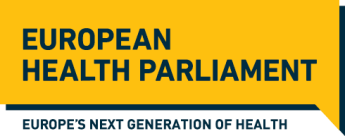September, 29, 2015
A Schengen area of healthcare – Moving to a more coordinated and cooperative European response to health threats
Disease does not respect national borders. Disease can spread from country to country in the time of an airplane journey. Within the EU, member states retain primary responsibility for healthcare, including responding to cross-border health threats such as the spread of disease. Given the freedom of movement within the EU, member states need to be well prepared to respond to these threats. However, the answer is not to close European borders, but rather to strengthen national healthcare systems, with proactive support from EU institutions, to prevent disease and protect European citizens.
The EU is ideally placed to protect EU citizens and member states from major public health threats, by acting to prevent the spread of health threats and coordinating a rapid response. Member states’ healthcare systems stand to benefit from increasing international cooperation, starting at EU level.
The European Health Parliament – 80 young healthcare heroes
The European Health Parliament is an initiative bringing together 80 young professionals and students seeking to rethink and improve European healthcare. Our initiative was supported by Google, Janssen Pharmaceutical, Politico, the College of Europe and the EU40 group of MEPs. Since November 2014, we have been challenged by industry, patient groups and politicians to be ‘healthcare heroes’ and think outside the box. Our motto, ‘Occupy Health Street’ is a direct challenge to established thinking.
Working in seven committees, covering everything from the prevention of chronic disease to access to therapeutic innovation, our overall recommendation to European policymakers is that we need more Europe in healthcare. We are not calling for national healthcare systems to be replaced, but for EU systems to reinforce and support national healthcare systems. As a hugely diverse group of young people, our ideas are not only forward-thinking but potentially future-proofing European healthcare.
Cross-border health threats
Cross-border health threats will always be a challenge in an EU with open borders. Disease does not stop at our national borders, so our healthcare systems, in turn, must be equally mobile, cross-national and proactive. The EU can act as a force multiplier, for example through joint procurement to lower costs, or the sharing of best practices between the people who matter most in preventing disease – our frontline health workers.
The European Health Parliament’s committee on cross-border health threats made four key recommendations. We have asked our European policymakers to develop a defined framework for EU intervention to support a health response; to develop a proactive EU-wide vaccination plan; to strengthen political efforts aimed at eradicating diseases such as multidrug resistant tuberculosis (MDR-TB); and to create a level playing field between member states that will allow for a cooperative response to health threats.
Currently, responses to healthcare threats are largely adhoc and left to national governments yet national governments require coordination to respond to them effectively. Although the EU and its member states provided an on-the-ground response to the Ebola outbreak in West Africa last year, it took months of wrangling to get frontline responders to the patients that needed help the most.
As healthcare budgets are cut across the EU, patient access is of equal a concern. When left unchecked because of a lack of access to basic healthcare, disease can become a huge problem. For example, the spread of MDR-TB within the EU stems partly from the causal connection between TB and poverty. With poverty comes a lack of access to treatment, whether it is from a lack of patient follow-up in stretched social security systems in certain member states, or an inability to afford basic treatment. Unfortunately, healthcare access currently depends on which EU member state you live in, as much as any other social marker.
“Data analytics can be used not only to cure disease, but to provide a rapid warning system”
Using big data to ensure better healthcare
The spread and evolution of ICT and other digital tools are enabling a new dimension of big data storage and analytics that can bring tremendous improvements across industries, including healthcare. Data analytics can be used not only to cure disease, but to provide a rapid warning system should a new health threat emerge, for example tracking seasonal influenza.
In this context, our peers in the European Health Parliament’s committee on big data in healthcare have recommended the creation of an EU-wide Electronic Health Records Organisation (EHRO). The EHRO would empower patients by enabling collection and usage of Electronic Health Records (EHRs) across member states, thus revolutionising healthcare and ultimately leading to better health outcomes, irrespective of national borders. The creation of EHRO would overcome past challenges and put the EU at the vanguard of the new digital century of health.
The EHRO would scale-up existing success in this field while using an open and transparent approach to platform creation. Patient data would be provided on an opt-in basis with data protection at the heart of the system. Targeted education campaigns and an incentive-based system at health provider system level would accelerate uptake and build trust. The EHRO system will not only empower patients and assist clinicians but will also provide a wealth of knowledge to advance medical science, preventing diseases, acting as an early warning system for outbreaks and improving health for everyone.
Healthcare without borders
More Europe is not a zero sum game; it does not mean reducing the role of national authorities as frontline responders. Instead, member states supported and strengthened by the EU will lead to the greater protection of European citizens. European citizens must have access to equal healthcare across the EU, to prevent weak spots emerging. In the same way that we can cross borders freely, we must have an open Schengen area of healthcare, where health expertise, equipment and professionals move quickly and with ease to support member states in need of help.
While the freedom of movement has been a major achievement for the EU, there are associated risks, not least, the ability of health threats such as disease to be easily transmitted across open borders. Although the management of healthcare is largely contained within national borders, these health threats are certainly not. They have no regard for national boundaries. They do not stop at border control and they have the potential to spread like wildfire if left unabated. Given the free movement of people within the EU, this is a huge problem. But the answer is not to close our borders – instead, we should strengthen national health systems and act proactively to prevent the emergence of disease in the first place.
As European health policy makers head to the European Health Forum Gastein on 30 September, we pose a simple challenge – protect your citizens by helping healthcare systems. Be it through joint procurement, or sharing best practice, the EU is well placed to pool and share its resources and prevent the spread of disease. We are all players in health – be it as policy makers or end users – so we all have a mutual interest in ensuring our health systems work to prevent and protect first and foremost. Join your European Health Parliament colleagues in thinking outside the box and beyond borders. Disease does not respect national borders; neither should we.
https://www.pmlive.com/pharma_news/a_schengen_area_of_healthcare_827891





